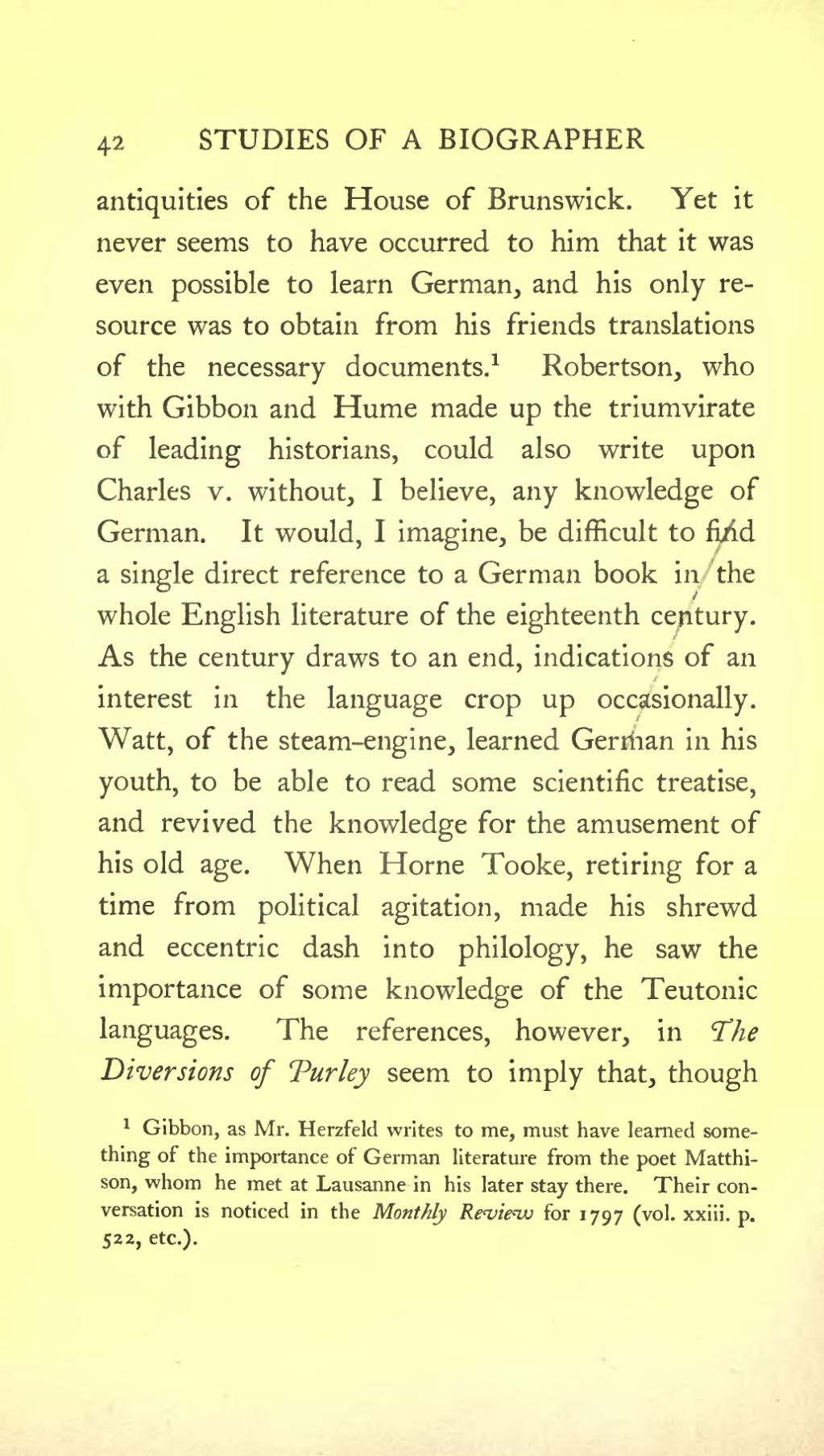antiquities of the House of Brunswick. Yet it never seems to have occurred to him that it was even possible to learn German, and his only resource was to obtain from his friends translations of the necessary documents.[1] Robertson, who with Gibbon and Hume made up the triumvirate of leading historians, could also write upon Charles v. without, I believe, any knowledge of German. It would, I imagine, be difficult to find a single direct reference to a German book in the whole English literature of the eighteenth century. As the century draws to an end, indications of an interest in the language crop up occasionally. Watt, of the steam-engine, learned German in his youth, to be able to read some scientific treatise, and revived the knowledge for the amusement of his old age. When Horne Tooke, retiring for a time from political agitation, made his shrewd and eccentric dash into philology, he saw the importance of some knowledge of the Teutonic languages. The references, however, in The Diversions of Purley seem to imply that, though
